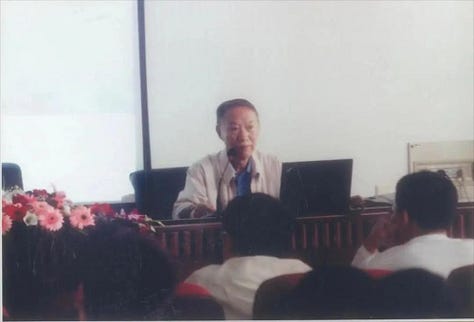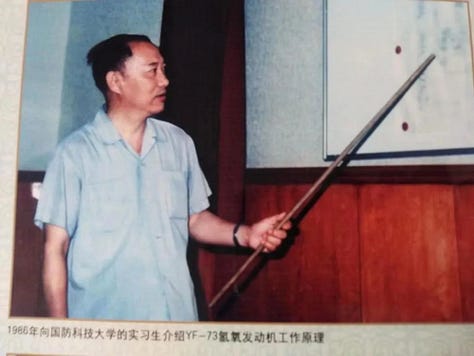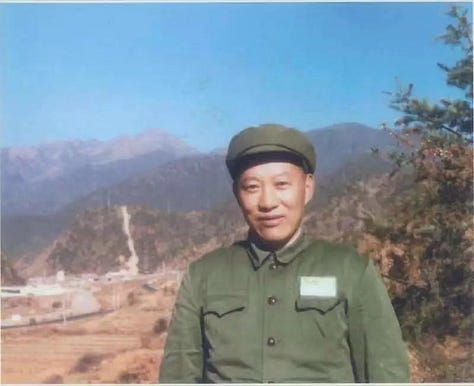Hydrogen Rocket Engine Pioneer Dies at 95
Zhu Senyuan (朱森元), academician at the Chinese Academy of Sciences, has passed away at the age of 95 earlier today in Beijing.
Zhu was the pioneer behind the YF-73 liquid hydrogen and liquid oxygen rocket engine that powered the third-stage of the Long March 3 launch vehicle. The YF-73 engine propelled China’s first satellites to geostationary orbits through the 1980s and 1990s.
A few hours after his passing, the Academy of Aerospace Liquid Propulsion Technology (航天推进技术研究院) released the following obituary for Zhu:
Comrade Zhu Senyuan, an outstanding member of the Communist Party of China, academician of the Chinese Academy of Sciences, expert in liquid rocket technology, and advisor to the Science and Technology Committee of China Aerospace Science and Technology Corporation, passed away due to illness despite medical efforts at 9:47 a.m. on May 14, 2025, in Beijing, at the age of 95.
Comrade Zhu Senyuan was born in October 1930 in Liyang, Jiangsu Province. He joined the Communist Party of China in 1952 and graduated from the graduate school of Bauman Moscow State Technical University in 1960. In 1961, he began working in the Rocket Engine Design Department of the Fifth Academy of the Ministry of National Defense, where he served successively as deputy director and director of a research office, chief designer, head of the expert group for the National High-Tech R&D Program (863 Program) on "large launch vehicles and rocket engines," standing member of the Science and Technology Committee of the First Research Institute of the Ministry of Aerospace Industry, and advisor to the Science and Technology Committee of China Aerospace Science and Technology Corporation. He was elected as an academician of the Chinese Academy of Sciences in 1995.
Comrade Zhu dedicated his life to the research of liquid rocket propulsion technology in China. He participated in the development of several key national liquid rocket engine models and led the development of China’s first hydrogen-oxygen rocket engine. He solved numerous critical technical challenges and helped China become one of the few countries in the world capable of launching satellites into geostationary orbit. He also led the planning and demonstration of China’s new generation of large launch vehicles and high-thrust liquid rocket engines. As a pioneer in hydrogen-oxygen rocket engine technology and a key driver of new-generation launch vehicle development, he made significant contributions to China’s space industry, national defense capabilities, and the cultivation of scientific and technological talent.
中国共产党优秀党员、中国科学院院士、我国航天液体火箭技术专家、中国航天科技集团有限公司科技委顾问朱森元同志,因病医治无效,于2025年5月14日9时47分在北京逝世,享年95岁。
朱森元同志1930年10月出生于江苏溧阳,1952年加入中国共产党,1960年毕业于苏联莫斯科鲍曼高等技术学校研究生院。1961年进入国防部五院火箭发动机设计部工作,历任研究室副主任、主任、主任设计师,国家高技术研究发展计划“大型运载火箭和火箭发动机”专家组组长,航天工业部第一研究院科技委常委,中国航天科技集团有限公司科技委顾问等。1995年当选中国科学院院士。
朱森元同志长期致力于我国液体火箭动力技术研究,先后参与多个国家重点型号用液体火箭发动机研制,主持了我国首型氢氧火箭发动机研制工作,解决了一系列重大技术难题,推动我国成为世界上少数几个具备地球同步轨道卫星发射能力的国家,主持我国新一代大型运载火箭和大推力液体火箭发动机方案论证,是我国氢氧火箭发动机技术的主要开拓者和新一代运载火箭技术发展的主要推动者之一,为我国航天事业、国防装备事业发展和科技人才培养作出了重大贡献。
Zhu Senyuan’s engines derived from YF-73 will support China’s space exploration for years to come. The YF-73 is the grandfather of China’s in-use liquid hydrogen and liquid oxygen rocket engines, the YF-75 series. The YF-75 series currently propels missions to geostationary orbit, the Chang’e program, the planetary exploration missions, and soon the crewed lunar exploration program, extending Zhu’s legacy.
More on Zhu’s life is available here.






